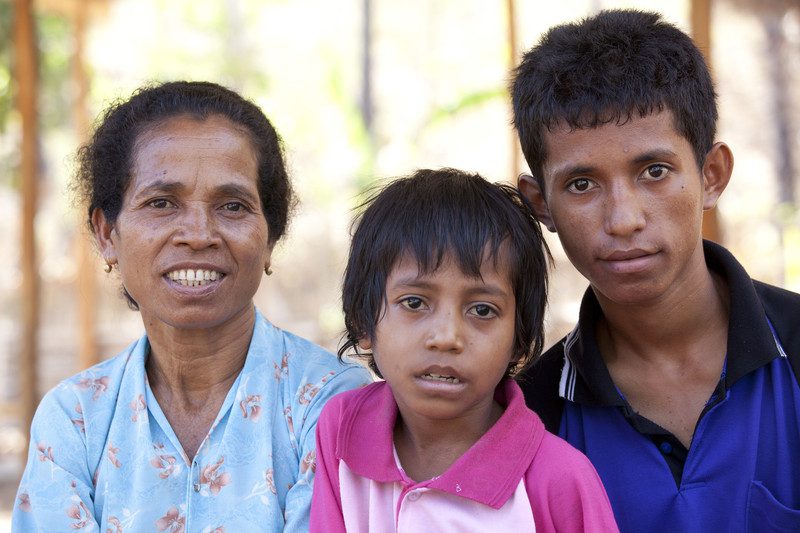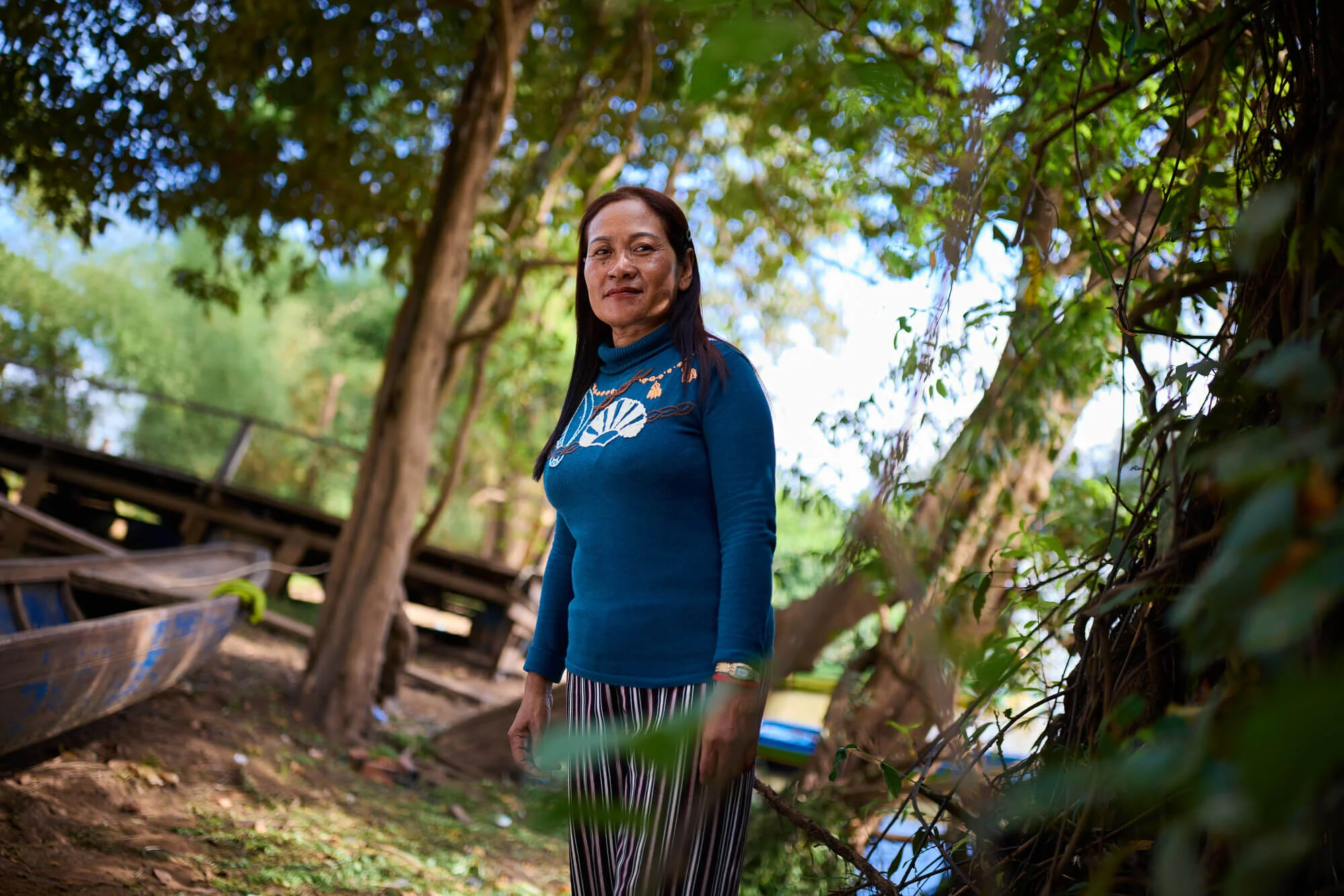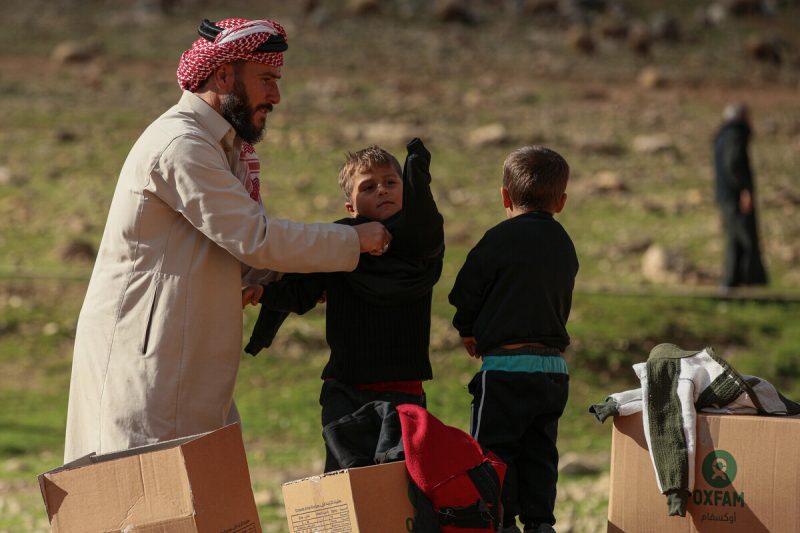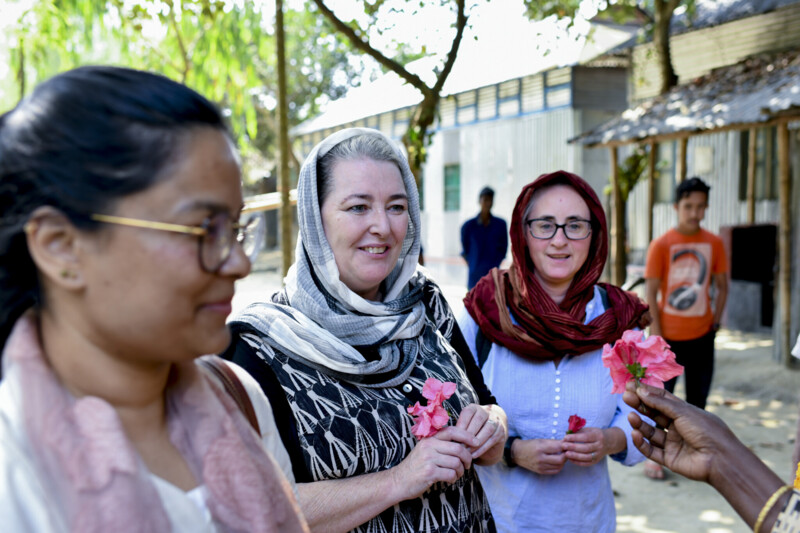Whoever said there’s strength in numbers could have been talking about women’s savings groups. Whether they’re from a tiny village in rural India or a hamlet in Timor-Leste, these tight-knit community groups not only help their members achieve levels of financial security that might otherwise be beyond their reach, but also provide an invaluable source of moral support and friendship.
Hailing from Uda Kaduak in Timor-Leste, 47-year-old mother-of-six Alysia Vittal has seen some big changes in her life since joining her local savings group. For starters, she’s gone from borrowing money every week at a jaw-dropping interest rate of 100%, to borrowing far less frequently at just 10% interest. With the other 16 women in her group, she put forward a proposal to Oxfam for assistance in building a community centre (now up and running). More recently, she borrowed money from the group to build a new home so she and her family no longer have to rely on her father-in-law.
In this interview, Alysia gives Oxfam’s Sarah Crozier the inside story.
Life before the group
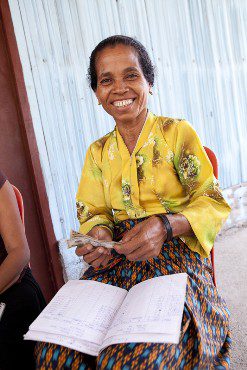
Can you describe your day-to-day life before the group was set up?
We did weaving and we sold firewood. We also raised livestock to sell to send our children to school … [and] we were selling fish. We bought fish from the fisherman, then we cleaned it and we sold it.
Did you borrow money before the group existed?
We had access to borrow money but the interest was very high. Now we have the group we can borrow with very low interest. For example if we borrowed $10 [before], the interest was $10. But now, in the group, if we take $10, then the interest is $1.
You had to pay back as much as you borrowed in interest?
Yes. If I borrowed $30, I had to pay back [an extra] $30 in interest.
How long had this been going on?
It had been going on like that for years, borrowing all the time. If my children need to pay their school fees but we don’t have the money and my husband has not been paid his salary, then I would need to borrow the money for school fees.
How often did you need to borrow money for food?
It might happen every month … because one bag of rice is $15-$18-$20. So every month if we didn’t have money then we would need to borrow some to buy rice. But now we have our group money so we can use it to buy food, and also borrow rice from the group.
Do you have fields for crops?
We don’t have rice paddy fields here, we only have corn. But because of long dry seasons, there is no rain so we cannot plant corn and we rely on buying rice.
How much corn do you usually yield in a good season?
Only enough for a month because of the problem with short periods of rain. After harvest time we only have enough to eat for a month and after that we have to buy rice.
Joining forces
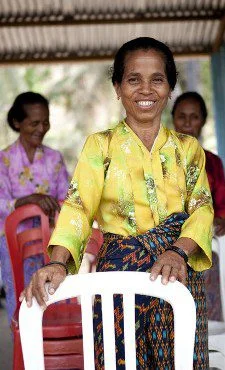
Can you tell me how the women’s group started?
We started the group in 2005 and it was supported by Oxfam. We do savings and credit and we also make regular payments to our group. Oxfam supported us to build our centre. They supported us with wood and cement and also provided us with chairs that we can rent out … the price is 20c per chair. And the regular payment that we pay every month is 25c per person.
How does the chair rental work?
It depends on whether there are occasions such as parties. People rent all 40 chairs altogether. For one chair they have to pay 20 cents per chair per day.
How did your involvement with Oxfam start?
First Oxfam came here and talked to us about setting up a group. And then we had many people coming. But later on because we did vegetable gardens and savings, some other people didn’t like it and they went away, so just the 17 of us continued the group.
Here and now
Your group has around $2000 saved up. Why do you think you’ve been so successful?
The 17 of us come together regularly every month. When we come together we add our 25 cents. We also have profits from our weavings and also from renting out chairs. So now our money is increasing.
Besides renting chairs, planting veggies and saving money, does the group do anything else?
Now we sell rice and there is some still left to sell. We give loans to people.
Do the group members ever get any of the profits from the group?
We haven’t received profits – it is not shared with members …We wait until we get more money.
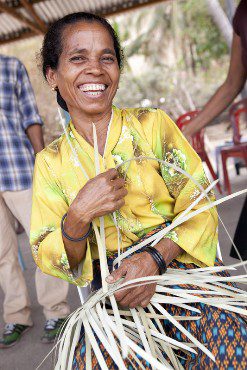
What’s the biggest change in your life since the group started?
Before if we needed money, we just worked on our own. But with the support of Oxfam and our group we have money now … and we have rice if we need it. We can borrow and that makes us feel good.
Can you tell me about the support and training that Oxfam has provided recently?
Supporting us in training to grow vegetables and also to plant coconuts. Oxfam also provided coconut seeds for us to plant. From the training we are able to grow vegetables, and after that we can sell them and the money can go towards our savings and credit group.
What do you use the savings group money for now?
We borrow money for paying school fees, children’s uniforms, building our house and traditional ceremonies.
How many children do you have and where do they go to school?
I have six children. The eldest and the second are now at university in Dili. Two are in pre-secondary school. And the other two are in primary school.
How much do you spend on their education every year?
We spend too much for six of them, out of our income from selling fish, weaving and selling firewood. We spend too much on the schooling. Some is on school fees, some on food and school clothes.
Home sweet home
Tell us about your new house.
I have borrowed $300 from the group to build my house. This house (where Alysia currently lives) belongs to my father in law. That is why we want to build our own house.
We needed a bit of money to buy the roof and timber. I borrowed money from the group to put together with my own money to build my house.
Do you own the land?
It’s my land and it has been registered with the department of land.
A cooperative future
What are the group’s plans for the future?
Now that we have a bigger amount of money, with the help of Oxfam we would like to set up a co-operative.
How will this benefit you?
When we become a cooperative we will get more money than what we have now … We will be happy and our group will work together and we will expand.
What do you hope for the future?
To be a cooperative with the aim that when I get older my children can benefit —continue their school and get help from the cooperative.
